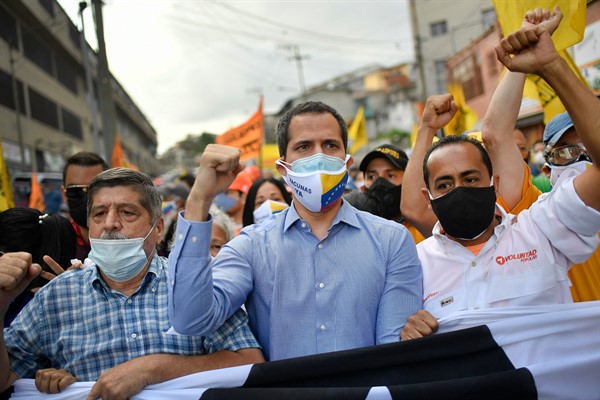Last week, the authoritarian government of Venezuelan President Nicolas Maduro announced it would allow the country’s main opposition coalition to compete in regional and municipal elections that are scheduled for November, lifting an electoral ban that was first imposed in 2018. It was one of several concessions Maduro has made recently, signaling his desire to improve his global image and seek sanctions relief from the United States.
The lifting of the electoral ban on the Democratic Unity Roundtable, or MUD, came as government and opposition representatives prepare to restart direct negotiations, with a new round of Norway-brokered talks reportedly set to take place next month in Mexico. These developments represent a potential way to ease Venezuela’s political tensions, which could allow the country to address its long-running economic and humanitarian crises.
Of course, the latest developments should be viewed with a heavy dose of skepticism. In the past, Maduro has engaged in talks and granted modest concessions to buy time and sap his rivals’ momentum. While the opposition hopes to secure a level playing field in upcoming elections, Maduro has no interest in allowing a free and fair vote that could weaken his authority. His main goal is to negotiate an easing of the crushing U.S. sanctions against his government. Even his decision to allow the MUD to participate in the November elections should be seen as a ploy to deflect criticism of his dictatorial regime.

